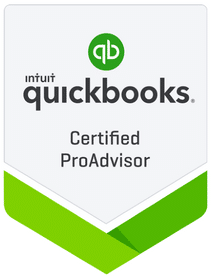- Patrick Roney
- (877) 503-8607
Follow Us :
Follow Us :
Proledge
September 11, 2010

When you ask business owners why they chose QuickBooks for their bookkeeping needs, you get two groups of answers. You have those who say “I didn’t think too hard about it. Everybody seems to be using it”. And then you have the group of people who rationalized their decision: good feature set, easy to use, affordable, here to stay, a lot of add-ons, etc… Both decision processes are perfectly valid and, in 99% of the cases, led to the right decision. However, there is one more argument that should come up and that you seldom hear: “there are few bookkeepers out there who know anything else but QuickBooks”. Sounds mundane? Think about it. It actually has a lot of implications, even if you already selected QuickBooks.
Any entrepreneur with ambitions might start running QuickBooks by himself or herself, but will eventually get to a point when the task needs to be delegated to someone else, whether it is to an employee or to an outside bookkeeper. That’s a pivotal point in the bookkeeping life cycle. If you decided to use anything else but QuickBooks, the pool of talent that you have access to has suddenly shrunk a thousand fold. Let’s say that you use Peachtree and you are based in Austin. My best guess is that there are less than five Austin independent bookkeepers with good Peachtree knowledge. Most likely these bookkeepers are already very busy and they charge two to three times more than the average bookkeeper. By selecting anything else but QuickBooks, you painted yourself into a corner and you made your life a lot harder… and expensive.
Let’s take this argument one step further. You’re telling me, “Duh, of course I’m using QuickBooks”. Have you thought about which version of QuickBooks you are using? Windows vs Mac? Pro, Premier, Enterprise? Which year? Unless you are working with a sophisticated bookkeeping services firm, the bookkeeper down the street is likely to have one version installed on his/her PC: QuickBooks Pro for Windows of a recent vintage. They should have QuickBooks Premier Accountant Edition installed, which is a superset of all the other versions, but they often don’t. This means that if your QuickBooks version is not absolute mainstream, you also shrunk the available talent pool.
Let’s take QuickBooks for Mac for instance. There are a lot of Mac lovers out there, but almost no independent bookkeeper runs QuickBooks for Mac. You can convert files between QuickBooks for Mac and QuickBooks for Windows back and forth, but it doesn’t work well. There is always some data that gets lost in the conversion. The vast majority of QuickBooks for Mac users eventually have to convert to the Windows version if they need to delegate bookkeeping.
The same applies to QuickBooks Premier and Enterprise. Wait until the last possible moment to upgrade from QuickBooks Pro, because, again, once you do this, you disqualified a large portion of bookkeepers from being able to help you.
In other words, if you chose QuickBooks Pro for Windows, you should feel even better about your decision and you should think twice about upgrading to anything else.


Fill out the form below to sign up to our Blog Newsletter and we’ll drop you a line when new articles come up.
Bookkeepers.
Professional. Affordable.
ProLedge is a bookkeeping services firm.
Copyright © 2024 All rights reserved.